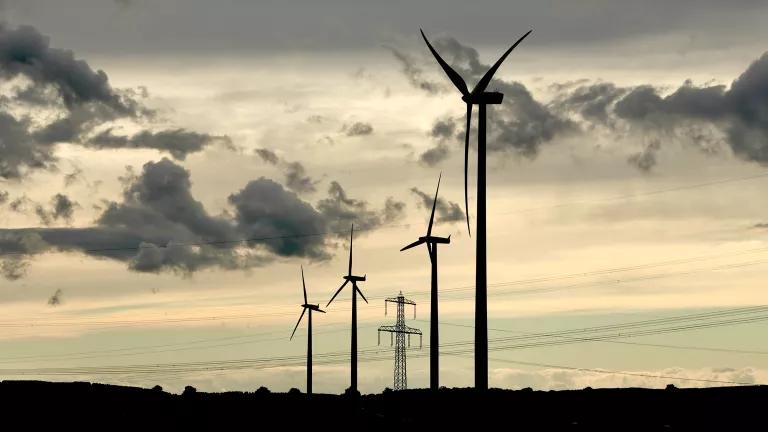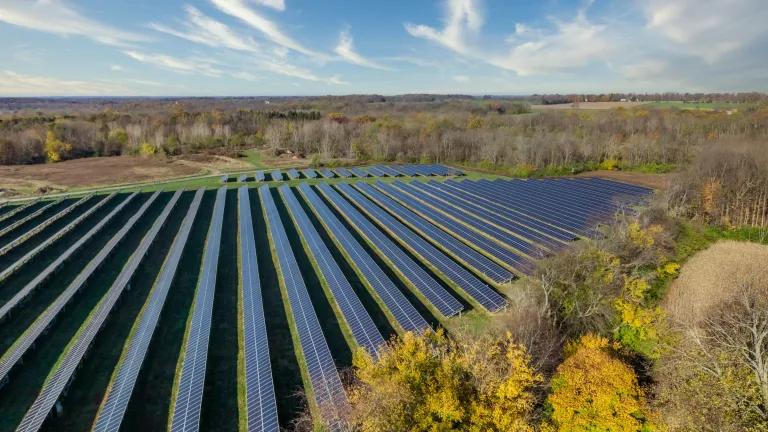
Co-authored with Madhura Joshi
With millions of workers forced back to their villages because of the COVID-19 lockdown, rural communities are suffering from a severe economic downturn in India. With over 870 million people living in India’s villages, rural jobs are critical. Economic solutions, such as Common Service Centres and village energy plans are vital to building back better post COVID-19.
India has made huge strides in lifting people out of poverty with incidence of multidimensional poverty dropping from to 27.5% from 54.7% 2005 to 2015. These gains include major push to provide electricity connections for rural India.
Despite the significant progress, energy poverty persists in rural India. Villages still lack access to reliable and affordable energy. Polluting diesel and solid fuels account for the main sources of energy with limited clean energy options. Most villages also have meek job opportunities.
The COVID-19 pandemic and economic slowdown along with the climate crisis are further threatening the progress that has been made. Creating sustainable livelihood opportunities, investing in clean energy solutions, and building resilience at the village-level are critical to rural India’s economic recovery.
Green Villages and Common Service Centres
Together, NRDC and the Self Employed Women’s Association (SEWA) have developed Green Village Energy Plans as part of Hariyali: Green Villages initiative. The project focuses on policy and market solutions to reduce energy poverty and increase jobs in rural India.
Working with SEWA, NRDC has designed interventions based on extensive analysis and discussions in two villages—Nagano Math in Arvalli District, Gujarat, and Beraniya in Dungarpur District, Rajasthan. NRDC and SEWA have started implementing Green Village Energy Plans in the two villages, including solutions focused on improving efficiency and reducing costs with solar water pumps for agriculture, efficient lighting and cool roofs.

NRDC and SEWA helped create Common Service Centres (CSC) to increase rural access to government services and programs, including clean energy programs. The Ministry of Electronics and Information Technology established the CSC scheme as “the access point for delivery of essential public utility services, social welfare schemes, healthcare, financial, agriculture, and several businesses to consumer services in rural and remote areas in India.”
The CSCs provide a platform for rural households to access government services—such as clean appliances programs. The centre also provides entrepreneurial services such as selling handicraft goods, electronics and produce.
To increase opportunities for clean energy programs and jobs, NRDC and SEWA led discussions and presented analysis to officials in Gujarat to create a centre at the village-level. After the discussions, a new centre was created in Anand District in Gujarat by SEWA, and another for Bayad Block, Arvalli District, Gujarat is under process.
Local availability of household energy efficient appliances such as fans or LED bulbs is often a challenge, particularly in the villages surveyed by the team. By strengthening the role of the CSC, run through SEWA’s women members, the potential to enhance the services from these centres is high—especially during the COVID-19 recovery. CSCs are a central point to implement the village energy plans, providing access to information and better energy efficiency products. Such experiments have also been carried out at other CSCs.

The Green Village Energy Plans developed by NRDC and SEWA also highlight financing opportunities. One such timely opportunity, is the Atmanirbhar Gujarat Sahay Yojna announced as a part of the COVID-19 recovery package. This program provides collateral-free loans of up to ₹100,000 ($1,400) from public sector banks at very low interest rates (2%) for a period of three years. The aim of these loans is to support small businesses and people falling under the lower middle income group. After community consultations, SEWA has begun the loan application process for its interested women members to further the implementation of clean energy solutions and promote livelihoods.
The road to recovery after the economic shocks of the pandemic is difficult. It is more challenging for rural areas that are hit the hardest. Yet, the one thing that the multiple economic, health, and environmental crises have highlighted is the need to double down on efforts to promote sustainable livelihoods. Promoting clean energy solutions and attracting clean energy finance are essential building back better.
Madura Joshi is a clean energy expert that works with NRDC as a consultant based in New Delhi.



